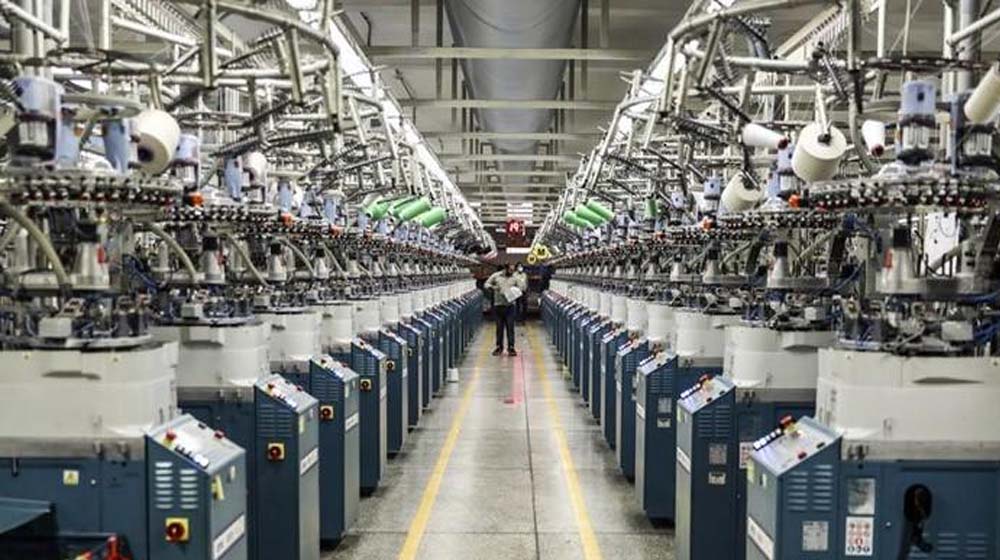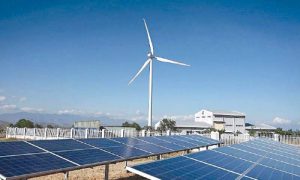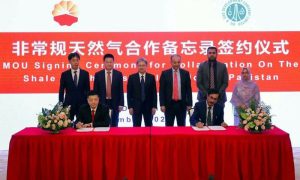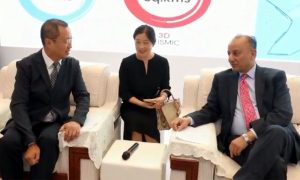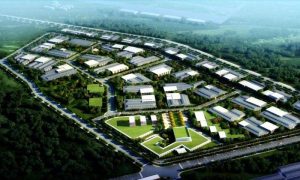Engineering Post Report
Textile is the most important manufacturing sector of Pakistan and has the longest production chair, with inherent potential for value addition at each stage of processing from cotton to ginning , spinning, fabric, dyeing and finishing, made-ups and garments.
This sector contributes nearly one-fourth of industrial value-added and provides employment to about 40 per cent of industrial labour force. Barring seasonal and cyclical fluctuations, textiles products have maintained an average share of about 60 per cent in national exports.
The ancillary textile industry includes cotton spinning, cotton cloth, cotton yarn, cotton fabric, fabric processing, home textiles, towels, hosiery, knitwear and readymade garments. These components are being produced both in the large-scale organized sector as well as in the unorganized cottage/small and medium units.
The performance of these various ancillary textile industries is presented as under as per information gathered from various sources.
COTTON SPINNING SECTOR
The spinning sector is the backbone in the ranking of textile production. Presently, as per record of Textile Commissioner’s Organization (TCO), it comprises 517 textile units including 40 composite units and 477 spinning units with 13414 million spindles and 198801 rotors installed and 11338 million spindles and 126583 rotors in operation with capacity utilization of 84.55 per cent and 63.67 per cent respectively.
CLOTH SECTOR
Problems of the power loom sector evolve mainly around poor technology and scarcity of quality yarn. Looms installed in cotton textile mills are 9084 and looms working were 6384. The production cotton cloth has increased by 56.3 per cent whereas in value term decreased by 8.28 per cent.
TEXTILE MADE-UP SECTOR
Being value added segment of textile industry made-u- sector comprises different sub-groups namely towels, tents & canvas, cotton bags, bed-wear, hosiery, knitwear & readymade garments including fashion apparels.
HOSIERY INDUSTRY
The industry sustains directly livelihood of 210000 skilled workers and 490000 unskilled workers. Another 350000 people benefit in allied cottage industries. Thus, the industry provides directly and indirectly sustenance to well over a million people. Knitwear exports consist of knitted and processed fabrics knitted garments; knitted bed sheets, socks etc.
READYNMADE GARMENT INDUSTRY
Readymade garment industry has emerged as one of the important small-scale industries in Pakistan. Its products have huge demand both at home and abroad. The local requirements of readymade garments are almost fully met by this industry.
Garment industry is also a good source of providing employment opportunities to a large number of people at a very low capital investment.
TOWEL INDUSTRY
There are about 10,000 towel looms including shuttle and shuttle-less in the country in both organized and unorganized sector. This industry is dominantly export based and its growth depends on export outlets. The existing towels manufacturing factories are upgraded to produce higher value towels.
CANVAS
The production capacity of this sector is more than 100 million square meters. This sector is also known as raw cotton consuming sector. This value-added sector has great potential for export. 60 per cent of its production .
SYNTHETIC TEXTILE FABRICS
Artificial silk such as Synthetic fibers Nylon, Polyester, Acrylic and Polyolefin dominate the market.
There are currently five major producers of synthetic fibers in Pakistan, with a total capacity of 636000 tons per annum. Production cost of artificial silk is less than silk, yet it resembles to it. Currently, artificial silk capacity in the country is about 9000 looms.
WOOLEN INDUSTRY
The main products manufactured by the Woolen Industry are carpets and rugs.
JUTE INDUSTRY
The main products manufactured by the Jute INDUSTRY are Jute Sacks and Hessian cloth which are used for packing and handling of wheat, rice and Food Grains.
Total number of 10 with 25060 spindles installed,Looms installed are 1134 and looms worked 885. The installed and working capacity of Jute Industry keeps fluctuating.


